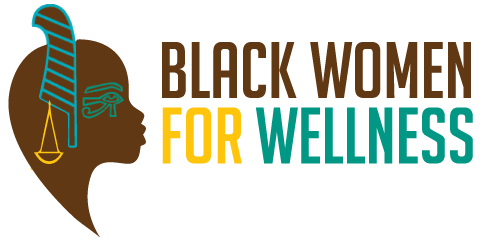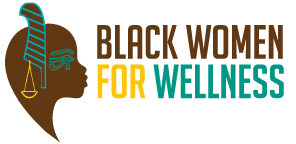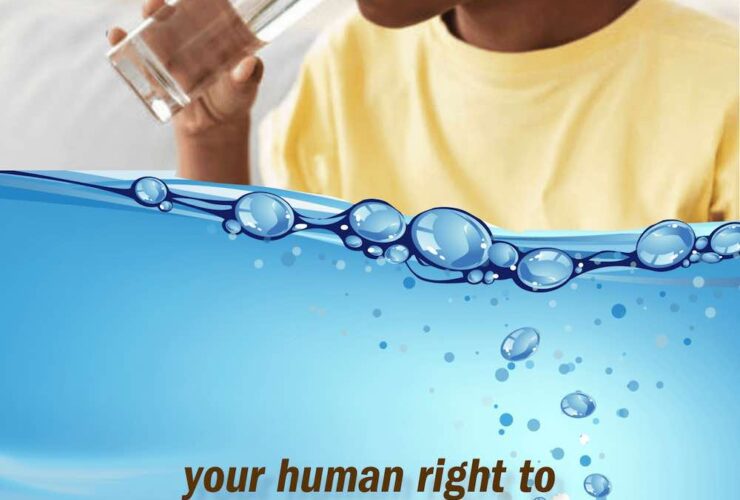For Immediate Release: November 11, 2021
Johnson & Johnson, a common household staple known for its talcum baby powder, is making big news — but not for good reason. Over 35,000 women are suing J&J over claims their talc products caused cancer, and the company worth almost $500 billion is now trying to evade responsibility with a controversial bankruptcy scheme known as the “Texas Two-Step.” In the landscape of beauty and personal care products, this is a big deal! And in a multi-billion-dollar industry, where toxic products are aggressively marketed to Black women, this is outrageous and unacceptable.
J&J is trying to market itself as a champion for Black Lives Matter and has recently been courting Black women’s groups with funding for women’s maternal health. But there is an obvious action this company must take if it is serious about protecting Black women’s health: stop selling talc baby powder in markets around the world where women of color are overexposed and under-protected from toxic products that are known to be harmful with the potential to disrupt reproductive health.
In a 2020 press release, Ami Zota, ScD, MS, Associate Professor of Environmental and Occupational Health at George Washington University Milken School of Public Health, shared, “Asbestos is a known human carcinogen, and no amount of this toxic substance is acceptable in our everyday cosmetic products like talc-based baby powder. Since it is nearly impossible to ensure that all talc-based powder products are free of asbestos, these products must be removed from store shelves across the globe.”
Black families have used many of Johnson & Johnson products for years. From baby powder used on infants to feminine hygiene products shared as a rite of passage, we see these products passed down between generations. Research studies have shown that Johnson & Johnson talcum products are toxic and harmful to children, and impact Black women’s reproductive health. The company’s own documents suggest that the company aggressively targeted Black women and other vulnerable groups with their marketing programs for talc, even as scientific studies raised concerns about cancer links, and even though the company was aware of asbestos contamination in some of its talc-based products. That’s why the National Council of Negro Women, (NCNW) filed a lawsuit in response to their egregious disregard for Black women’s health.
As Johnson & Johnson continues to face thousands of lawsuits regarding the talc-based powder, last year it said it would stop selling their baby powder product in Northern America, in the United States and Canada. However, the products are available domestically through online retailers such as Amazon and can be found in local discount stores in many urban communities. In response, Jan Robinson Flint, Executive Director of Black Women for Wellness, a social justice non-profit agency based in Los Angeles, California said this is not enough. Ms. Robinson Flint responded, “This halfhearted announcement represents a baby step toward the kind of meaningful commitment needed by Johnson & Johnson to protect Black women, and women everywhere, from the serious health risks associated with exposure to asbestos-contaminated talc-based baby powder.” Black Women for Wellness along with the nearly 200 organizations from 51 countries around the world representing a broad coalition of health and environmental justice, and women’s and health-affected groups, formally requested that Johnson & Johnson commit to fully removing its talc-based baby powder from the global market, in North America and abroad, and end the company’s targeted marketing to Black women and other historically marginalized communities.
Environmental Justice Program Manager with Black Women for Wellness, Dr. Astrid Williams urges; we must stand in solidarity to join the fight and put an end to “systemic racism” led by companies, organizations and unjust policies that have burdened our communities for decades. Dr. Williams shares, “Most women don’t realize that the personal care products they use on their bodies on a daily basis have potential risks for harm. It’s shocking to find that it is perfectly legal for products to contain any number of hazardous ingredients. From cancer-causing asbestos in baby powder, to hormone disrupting phthalates in beauty aids, this situation is dangerous to the health of all.” What is more alarming is that Black women in particular, are most at risk for unsafe exposures because of the toxic chemicals in the beauty products marketed to them and carry a higher toxic load. Breast cancer is on the rise and hundreds of scientific studies show it’s due in part to environmental contaminants in our ongoing daily exposure to toxic chemicals lurking in our homes, workplaces, and our communities-including beauty, hair care, and personal care products.
How is this legally possible? The U.S. law that governs the $100 billion beauty and personal care industry is only two pages long and hasn’t been significantly updated for over 80 years. While the European Union (EU) bans nearly 2,500 chemicals from beauty and personal care products, the U.S. Food and Drug Administration only bans or restricts 11 known to be harmful toxic chemicals. The beauty industry has expanded as a whole, it has grown and evolved so much in the past century, it’s time our cosmetics safety laws and protections evolve as well.
We need meaningful federal cosmetic safety reform. We need to hold companies like Johnson & Johnson accountable. To learn more about Black Women for Wellness and how you can join our environmental justice initiatives visit: www.bwwla.org.
###
About Black Women For Wellness:
Black Women For Wellness is a nonprofit social justice agency based in Los Angeles, California committed to advancing the health and well-being of Black women and girls through education, empowerment, and advocacy. Learn more at www.bwwla.org
Contacts: Dr. Astrid Williams, BWWLA Environmental Justice Manager [email protected]; Sytonia Reid BWWLA Communications Manager [email protected]



